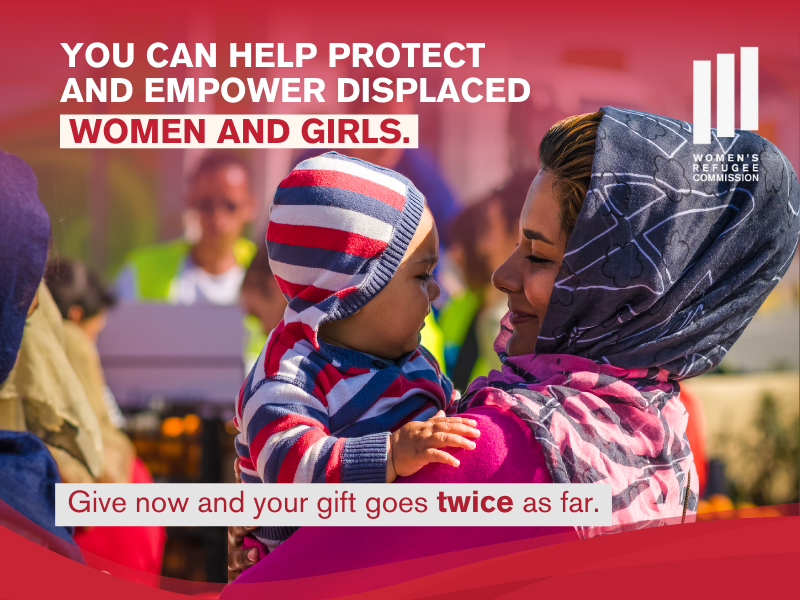This blog was cross-posted from Medium.
“…I know I lost all my rights when I arrived to this country. … It does not seem right to me that, knowing if a person is returned, she will be killed, that the U.S. returns the person anyway.” Rosa, Detained in El Paso
It does not seem right to us at the Women’s Refugee Commission (WRC) either. The United States should be a country where rights are protected, not taken away.
Every day, asylum-seeking women like Rosa, fleeing violence and persecution in their home countries, arrive at the southern border of the U.S. only to be detained in facilities that are described as “prison(s) for survivors.” Among many other examples of mistreatment, indignity, and lack of protection, women asylum seekers are treated as criminals, have difficulty accessing the asylum process, and may be forced to buy their own feminine hygiene products or to wear underwear that were visibly soiled from prior use.
Although the policies of increasingly targeting asylum seekers at the border began under the Obama administration, the Trump administration is exacerbating the situation by treating asylum seekers as criminals and threats to national security. In doing so, the current administration is undermining due process, the security of our country, and our commitment to protection of those fleeing violence and persecution.
WRC has been monitoring immigration detention practices for over two decades. In 2016, we observed a marked increase in the detention of women asylum seekers and set out to tell their story. We found that both the proportion of women in detention had grown and that the number of women and girls going through an initial screening for protection skyrocketed since 2013. Given that Congress now funds nearly 40,000 detention beds a year, and that the Trump administration proposes increasing detention levels by 50% from where they were in FY 2016 to 51,000 beds, our findings underscore the urgency of a need for transforming our broken policies.
WRC traveled to seven detention centers in Texas, Arizona, California, and New Mexico, and spoke to nearly 150 women who were in need of protection but instead found themselves detained, many for months.
Our report documents various problematic conditions in detention that also impede access to protection. Women like Rosa struggled to obtain lawyers and legal information, and at key stages of their case lacked adequate interpreters to express their claim. Women had virtually no privacy. In numerous facilities, showers and toilets had no privacy from one another or from the larger room in which women were sleeping. Women also reported exorbitant costs for phone calls, inadequate medical care, and insufficient sanitary products. Women told countless stories of institutionalized humiliation, such as having to forego sanitary pads because they preferred to use the little money they had access to to speak with their children. Some of the most disturbing stories we heard were from mothers who had been separated from their children at the border and were desperate for information about where their children were and whether they were safe.
The Trump administration’s policies, which go beyond just “shutting down the border” and limiting access to protection, are perversely cruel and undermine critical due process protections that are the cornerstone of our democracy.
Today, the Congressional Women’s Working Group on Immigration held a forum to discuss the experiences of immigrant women in detention, including many issues highlighted in WRC’s report. We commended Congresswoman Roybal-Allard (D-CA), Congresswoman Jayapal (D-WA) and their colleagues for recognizing that the U.S. immigration detention system is in desperate need of reform. Stories about women like Rosa and so many others need to be heard.
We hope that the increased spotlight on the conditions of women in detention will help Congress make the right choice — the choice to say ‘no’ to funding for an expansion of immigration detention and ‘yes’ to policies that will ensure more stringent oversight of mistreatment in detention.
Vulnerable women and children who are fleeing violence should not be prosecuted or persecuted for seeking protection. The immigration detention system needs fundamental reform and asylum-seeking women like Rosa deserve better than detention centers that are like “prison(s) for survivors.”


